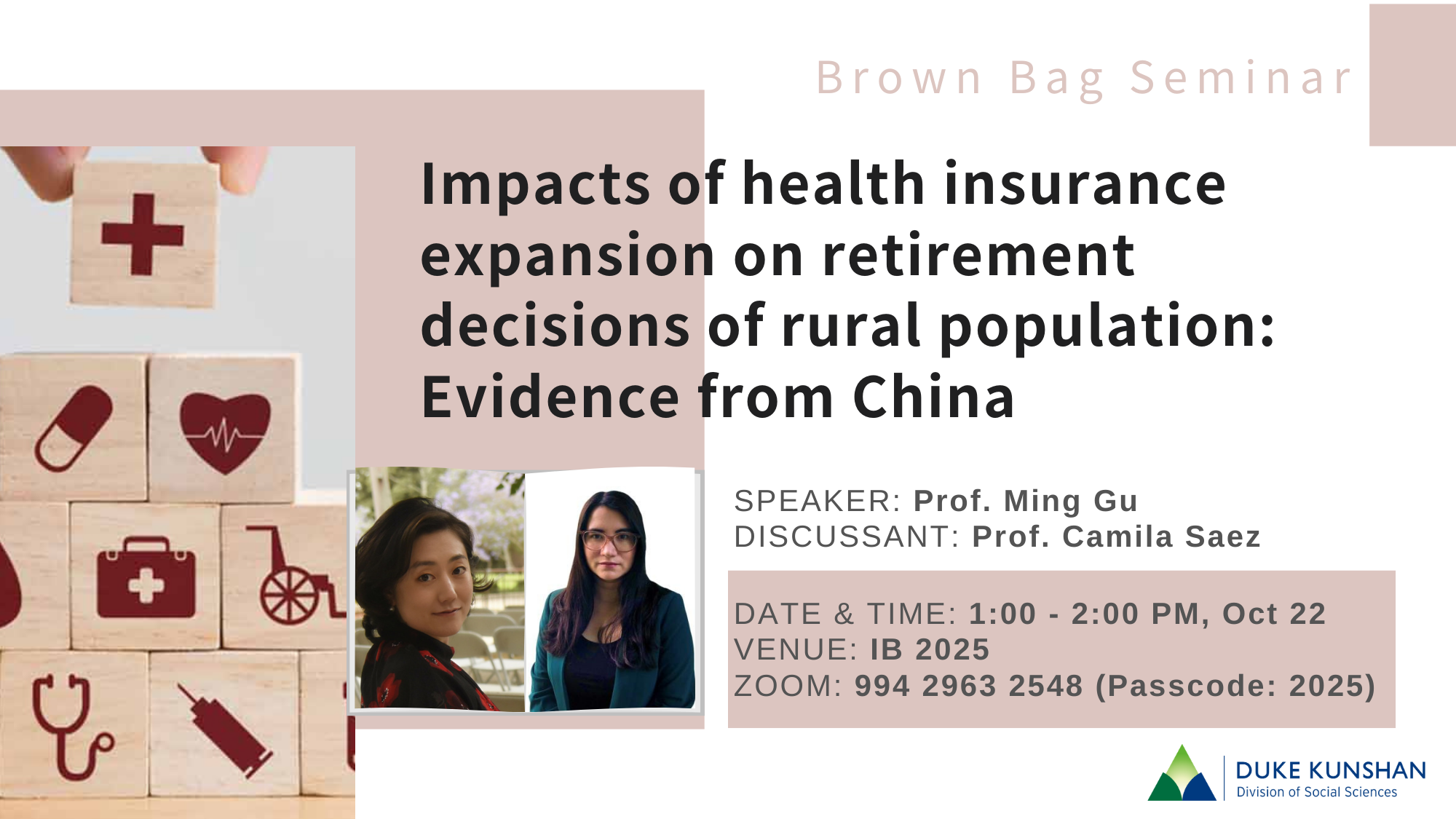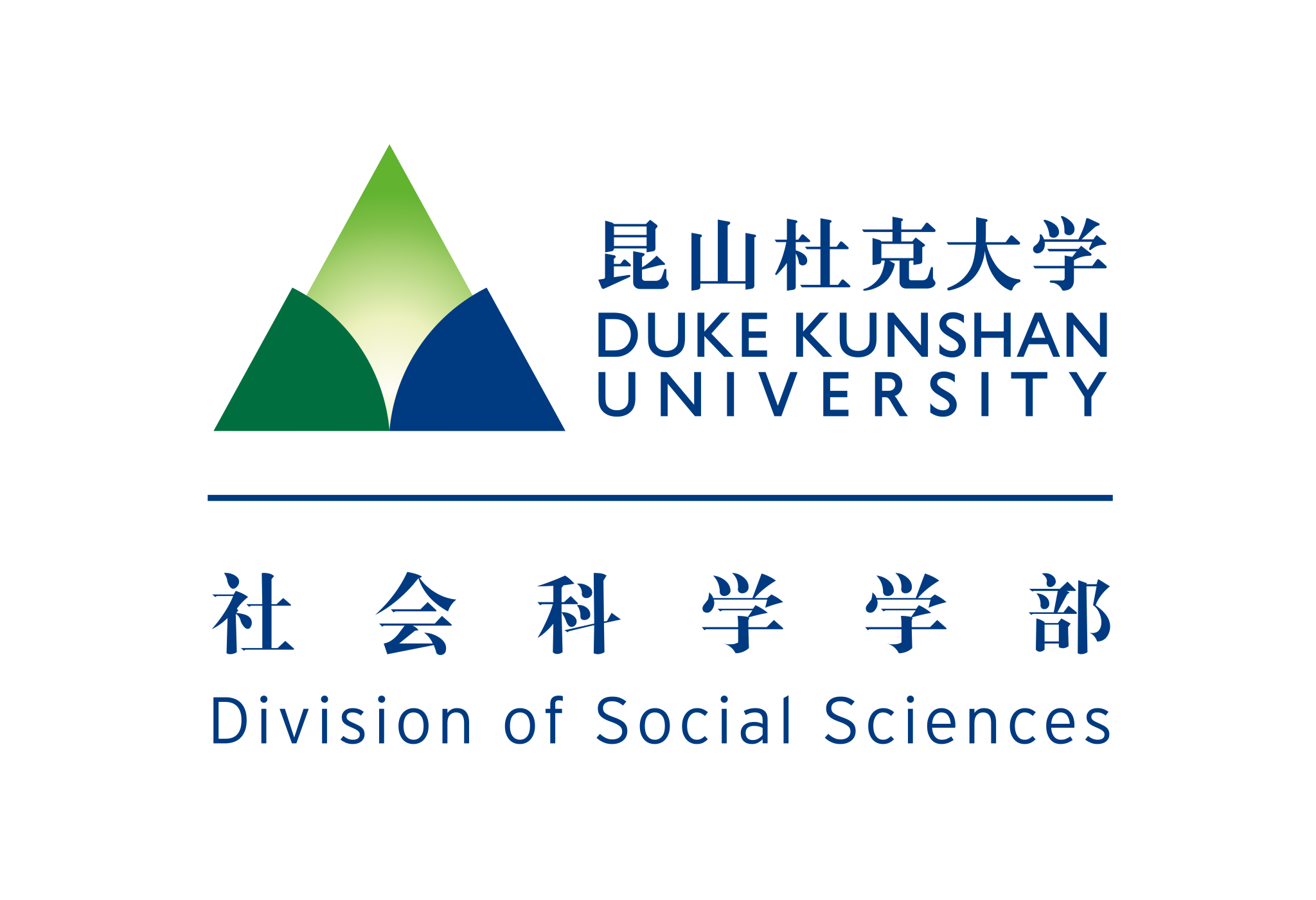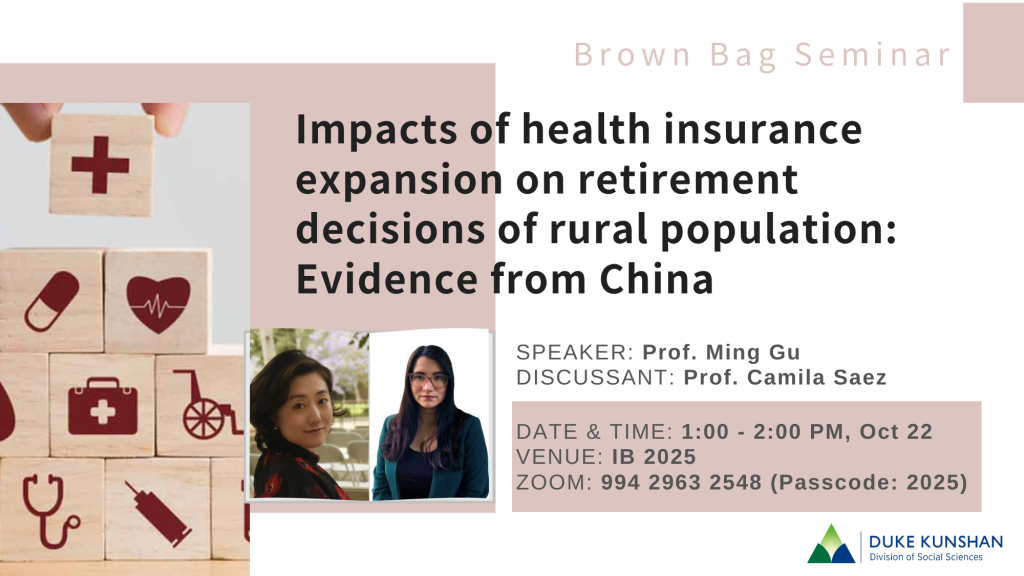
Brown Bag Seminar – Impacts of health insurance expansion on retirement decisions of rural population: Evidence from China
Abstract
Since people in the US become eligible for Medicare at the age of 65, there is a lack of empirical evidence of health insurance’s effect on retirement decisions for people over that age. Much of the existing literature on the retirement-health insurance link is concentrated on the effect of health insurance on the potential early retirement prior to age 65, including the more recent studies on ACA expansion of Medicaid. This paper aims to close this gap by presenting causal estimates for the effects of the further expansion of New Cooperative Medical Scheme (NCMS) program in China on retirement decisions of the rural population, for whom there does not exist retirement age set by the institution. Since its conception in 2003, NCMS is known as the largest insurance program in the history of the modern world with a coverage of 800 million rural Chinese. Starting in 2008, local governments started to further improve the insurance benefit of NCMS by integrating it with Urban Resident Basic Medical Insurance (URBMI). Using nationally representative survey data, we found that public health insurance improvement led to delays in retirement and more working hours among the elderly. This surprising result may be attributed to two mechanisms: first, people are able to delay retirement and work more due to better health status. An unintended second mechanism is that insurance beneficiaries need to delay retirement due to an increase in the probability of incurring
catastrophic health expenditure, which is a consequence of an increase in healthcare access. Further analysis showed that an increase in inpatient care due to health insurance improvement is a key driver.
Key words: Labor supply, Public health insurance, URRBMI, Elderly rural population
Speaker Bio
Ming Gu is an Assistant Professor of Economics in the Division of Social Sciences and an affiliate of Global Health Research Center and Center for the Study of Contemporary China at Duke Kunshan University. She earned a B.A. in economics at the University of California, Berkeley, and a Ph.D. in economics at the University of California, Los Angeles (UCLA). While Dr. Gu’s research interests encompass health economics, education economics, labor economics and political economy, the overarching goal is to investigate the process of preference formation globally. Understanding which factors affect people’s attitudes and economic behaviors will enable researchers to better explain socioeconomic disparity, a universal challenge faced by many economies. Her work has been published in The Lancet Regional Health – Western Pacific, SSM – Population Health. Since joining DKU, she has been awarded a “Shuangchuang Prestigious Ph.D.” Award and First Prize in Education Digitalization Research Publication Call for Paper by Jiangsu Province, China, and have participated in a project funded by the National Natural Science Foundation of China.
To register for this event email your details to shuqian.xu@dukekunshan.edu.cn
Date And Time
2024-10-22 @ 02:00 PM




